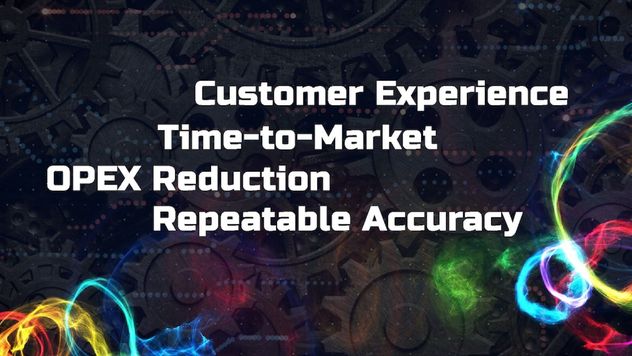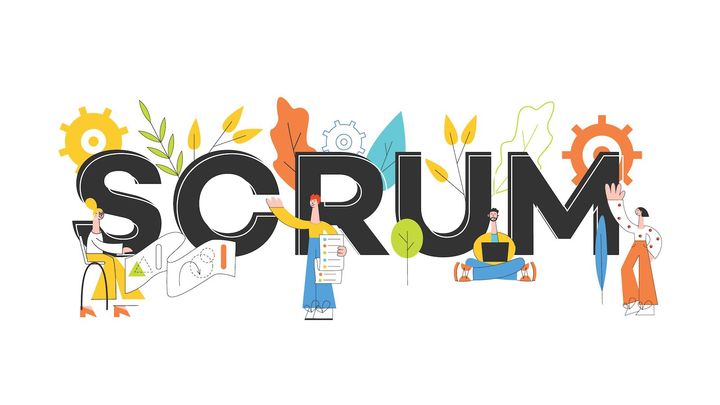
Business innovation and the opportunities they create is how enterprises distinguish themselves from one another. It is how they do things better, how they create value, and ultimately, how they pass that value over to the customer. Business innovation isn’t a box you can check off and forget about, rather, it is a continuous effort that is empowered by technologies and methodologies that are available at any given moment. Today, that technology is artificial intelligence.
Many of you are likely familiar with the AI enablers to follow; some having worked with them first hand. Others are likely familiar with the applications, however, may not have known that artificial intelligence is playing an important role in the background. Regardless, my point is to inspire you to think differently about AI and how it can impact your business. Like many new technologies, the full potential of AI is being realized slowly, and it only takes someone exploring the possibilities around them to discover something new.
Enablers of Innovation
Big Data
Here is the thing about Big Data – it’s big. I’m talking massive. Big Data has to be so in order to reveal patterns and associations, and predict trends accurately. However, while humans do have the capacity to discover patterns and predict trends, it is an impossibility at the scale in which modern enterprise demands. For AI, on the other hand, it is impressively suited to glean through large data sets in order to quickly and most of all accurately derive actionable insights.
Internet of Things
The Internet of Things was bred out of convenience and personalization, which only stands to reason why AI will only help to continue its widespread adoption. Building internet connectivity into a wide variety of devices is one thing, however, allowing those devices to communicate with us and coordinate with each other will only lead to greater shopping, home, entertainment, and professional experiences.

Deep Learning
When talking about artificial intelligence, the word that stands out most is intelligence, and a hallmark of that is the ability to learn. Deep learning does just that, by utilizing artificial neural networks to act as a human brain would, analyzing and learning all without the aid of a computer programmer. This ability to “think” on its own is a driving force behind such innovations as autonomous vehicles, which is great, as keeping a computer programmer in the trunk of your car isn’t a feasible option.
Reinforcement Learning
Reinforcement Learning (RL) is an important type of Machine Learning where “machines” learn how to behave in an environment by performing actions and seeing the results; not unlike students in a classroom. This behaviour can be learnt based on a reward mechanism, once and indefinitely, or keep on adapting as time goes by. RL algorithms can converge to establish an ideal behaviour baseline, especially for robotics, autonomous driving, and process control.
Probabilistic Programming
One of the fascinating things to rise out of AI is the feasibility of probabilistic programming. In simple terms, this programming allows for problems to be solved in nonlinear time. What does that mean? Well, traditional simulations used for problem-solving only arrive at the results at the end; however, the probabilistic programming can look at the conclusion first and determine how those results can be achieved “going backwards.” This has far-reaching implications, from customer service to financial forecasting.
The above are the enablers that bring the latest and most advanced business applications to light. However, what’s arguably more important are the opportunities that AI can bring to your business, and here are some of the most exciting ones.
Applications & Opportunities
Autonomous Vehicles
The automobile market is enormous, however, despite what you may think, it is still a limited market. That is because while anybody can buy a car, not everyone can drive one. That is, they couldn’t before Artificial Intelligence came along. People who are blind or suffer from certain physical limitations will soon have the ability to go anywhere thanks to this new technology. The use of these Self-Driving Vehicles (SDVs) in logistics is another innovative application and this tech is already being tested with prodigious results.
Robotic Process Automation
While we hope everyone loves what they do for a living, the reality is that even the best “dream jobs” have their periods of boring and monotonous work. In fact, some jobs seem to be exclusively filled with such processes. But it doesn’t have to be. AI fueled Robotic Process Automation (RPA) currently replicate basic rule-based tasks, much faster, accurate, and cost-effective than humans, and will eventually constitute the epitome of an Intelligent Digital Workforce.

Logistics & Delivery
A product is only of value if it reaches the hands of the customer, and this principle is why logistics and delivery is so crucial to business success. Integrating AI in your supply chain management can unify your data; analyzing and providing insights across the organization as well as streamline the customs brokerage process. However, it is in predictive analytics that we see the most significant value, through its demand prediction, route optimization, and network management.
Customer Service
Whether they have made a purchase or not, and regardless of how far along in the buyer’s journey, any good enterprise needs to ensure that the customer’s demands are met. However, given the multitude of touchpoints on that journey, this can be difficult. For AI, however, it can act as a “gatekeeper” throughout the experience handling simple questions like inventory, availability, or straightforward exchanges and refunds, which frees up staff to focus on more complex and sensitive issues.
Chatbots
Thanks to AI, chatbots have grown more sophisticated, and in many ways, are almost indistinguishable from humans. In fact, chatbots are often a better alternative than using traditional CSR. Instant response to inquiries, reduced service time, fewer errors, increased customer engagement, the ability to handle simple transactions, and proactive customer interactions are all within the grasp of these bots. And if you can think of a scenario that wouldn’t be improved with AI, then you have just found an instance for a human CSR to take the lead.
Customer Relationship Management
CRM systems were in and of themselves a considerable business innovation, one that continues to yield results for sales teams. However, given the less than stellar success rates of such implementations, AI is poised to do what sales teams and CRM alone can’t. From transcribing and analyzing calls to qualifying, engaging, nurturing, and following up with leads via email, AI is positioned to not only do more for the enterprise but the customers they serve.
Payment Services
Life is filled with some certainties that go beyond death and taxes. For example, if your house is anything like mine, you regularly need milk, fruit, toilet paper, and a variety of other “staples.” AI, as your own personal “butler,” can make those authorized payments and arrange for shipping to your home when your supply is getting low. Anyone with kids will quickly see the value of always having the essentials on hand.
Translation
Whether you are a business traveller or looking to branch out into new international markets, one of the most significant barriers to not only business but people is language. However, thanks to AI, more and more companies are expanding into new markets, no longer encumbered by language. And while technology has made the world a smaller place, I believe it is AI that will help empower true universal communication.
Behaviour Prediction
Anyone in business knows that the customer is the most important thing, which is why perhaps so much time is spent trying to guess what they’ll do next. Thanks to Artificial Intelligence (AI), however, these predictions have gone from guesswork to a science. AI and its ability to analyze massive data sets give the enterprise the ability to learn more about their customers, such as their shopping habits, preferences, and even churn rate, so that they will not only be able to foresee what the customer will do but can ideally influence it.

Decision Making
When asked the key to their success, it isn’t uncommon to hear powerful men and women give credit to “trusting their gut.” And while this may be your best option in certain situations, the modern business landscape is unlikely to be one of them. Artificial Intelligence has given enterprise the ability to weigh the variables, judge potential outcomes, and make the best decision based on the relevant data. And while not as sexy as “trusting your gut,” AI-powered decision making is likely to be a lot more accurate and yield better results.
Intrusion Detection
While technology has enabled us to do more, it has also caused us to be more conscious and aware, especially when all our new capabilities can potentially leave us vulnerable to digital intrusion. Current defence against cyber attacks are generally of a responsive nature; however, with AI’s help, this can be switched to proactive. With AI, an enterprise can set a baseline of normal activity on their network, and as a result, more accurately recognize potential threats if they deviate from typical behaviour.
Content Creation
Content isn’t just a way for an enterprise to get their message to the customer, it is a way to provide that customer with value. However, Artificial Intelligence is increasing the efficiency in how we do that by allowing us to deliver personalized content to the user and by helping inform our strategy through insightful data analysis like which type of content will perform best. Creation aside, AI already does aid in the distribution of content, allowing for more efficient and documented campaigns.
HR & Recruitment
HR and recruitment are by nature a very “people” laden vertical; however, that should be no indication that AI integration isn’t applicable. HR is filled with numerous rule-based tasks that could be done much better by AI and RPA. Let us take onboarding for example. Typical onboarding would take an HR associate 2.5 hours to complete from hiring decision to sending the welcome email, while an AI-fuelled substitute could accomplish the same in just 8 minutes.
Digital Marketing
Marketing is usually only effective when the right message gets to the right audience, more specifically, on the right channel. Thanks to AI, with its ability to analyze large data sets and to automate processes like distribution of marketing materials, targeted messaging across channels is becoming easier and more effective than ever. This will help ensure that marketing dollars are spent in more effective ways and can also help to tailor messages that are appropriate for whatever stage of the buyer journey the customer finds themselves.
Manufacturing
Robots are already par for the course in many industrial sectors, however, that is for their physical capabilities, but today, AI and its ability to reason, theorize and forecast is what has the manufacturing world excited. From improving predictive maintenance, reducing supply chain forecasting errors, and reducing energy costs through demand forecast, the benefits of AI in manufacturing directly impact the bottom line.
Few moments in history are marked by the presence of a technology that is so adaptable, has such widespread potential, and that can impact as many verticals across as many industries, as AI. With businesses investing more each year and with jobs like Data Scientist topping the list of “Best Job” three years in a row, the relevance of AI should be clear. However, while the intelligence behind AI is artificial, its applications and use are as real as they get, and there will be nothing fake about the business innovations yet to come from this important technology.



